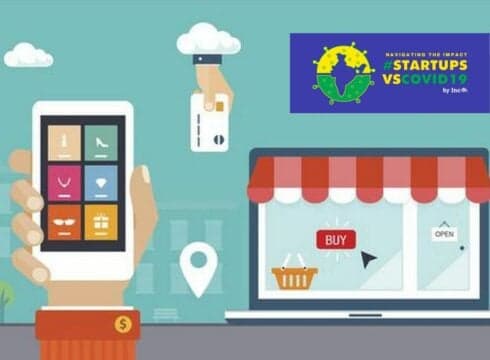More than 15-20 Mn SMBs are expected to go online in the coming months to sustain their business
People buy enterprise software, but SaaS startups need to price it smartly, said Sequoia GV Ravishankar
Amazon has signed up over 600K sellers on its platform, compared to 550K in mid-January
Inc42 Daily Brief
Stay Ahead With Daily News & Analysis on India’s Tech & Startup Economy
The Reset
Time to hit reset and accept the new normal. Our series of in-depth stories and analysis on the changing dynamics of India’s tech landscape in a post-Covid19 world — from how industries and sectors are transforming to new opportunities, evolving consumer behaviour, the new rules of venture capital, M&A and more.
The coronavirus pandemic has unleashed a ton of disruption for businesses at large, but small-medium businesses (SMBs) in particular have been impacted heavily. For one, these businesses are dependent on consistent revenue for survival and for sustaining employees. Now many who have not used technology or digital tools in their business have had to foray into online platforms for selling and procuring products and services. According to industry experts, more than 15-20 Mn offline SMBs are expected to go online in the coming months to sustain their business and find a way to earn more revenue through various online distribution channels for both B2B and B2C products.
Throwing light on the same, GV Ravishankar, managing director at Sequoia Capital India, believes that while traditionally most small businesses are not technology-enabled and lack width and range of distribution, once businesses start getting comfortable with ecommerce, there will be no stopping them. SMBs will be able to get a better range of products at a better price and great quality service. More than anything, these kinds of convenience when extended to corporates can consolidate the demand, which is likely to take off in the coming days, be it in infrastructure, industrial parts, agriculture equipment and more.
“We have started to see people adopting more to commerce because of them ordering items from B2C ecommerce platforms such as Amazon and Flipkart, then why not take a similar convenience to corporates?” — Sequoia’s GV Ravishankar.
Will Indian Businesses Pay For SaaS Platforms?
As Covid-19 continues to hamper business operations across domains, a lot of SaaS players are emerging in the SMB space with customised solutions specific to small businesses. While large retailers have tied up with ecommerce platforms directly, smaller offline traders retailers and enterprises have turned to SaaS players for tech enablement. The question is whether India will be able to ride this opportunity smoothly, as the majority of the Indian businesses are still sceptical when it comes to paying for enterprise software services.
“There are some parts for SMEs, where people are willing to pay,” said Ravishankar about the prospects of SMBs paying for SaaS products. He added that Indian enterprises will pay for such technology services differently. “For instance, they will pay for service plus a product, which will help them ease the process and get more business.”
Citing the examples of JustDial for SMBs, he said that a lot of times people are willing to pay if you give them business. “The key is selling them differently, be it pay-as-you-go model, fee per service or commission etc,” said Ravishankar, adding, “People buy software, but they buy it differently.”
B2C Ecommerce Platforms Digitizing Stores
In the B2C ecommerce space, Amazon and Snapdeal recently said that they are witnessing a surge in the number of signups and queries from local retailers. The ecommerce giant said that it has over 600K sellers on its platform, compared to 550K in mid-January. The change is coming faster than expected, and many offline sellers, neighbourhood kiranas are now leveraging ecommerce platforms to sell their products online.
Vijay Shekhar Sharma, founder at Paytm had also said that many stores will move online once the lockdown ends as people are concerned about their safety. Further, he said that the fear of the coronavirus outbreak will lead to the digital transformation of neighbourhood stores.
Siddharth Talwar, cofounder and partner at Lightbox, also said that enterprises should have to shift to a direct-to-consumer approach enabled by digital tools and ecommerce as it could create a larger explosion of digital platforms, and businesses can reach their consumers via online discovery and doorstep delivery.
{{#name}}{{name}}{{/name}}{{^name}}-{{/name}}
{{#description}}{{description}}...{{/description}}{{^description}}-{{/description}}
Note: We at Inc42 take our ethics very seriously. More information about it can be found here.


